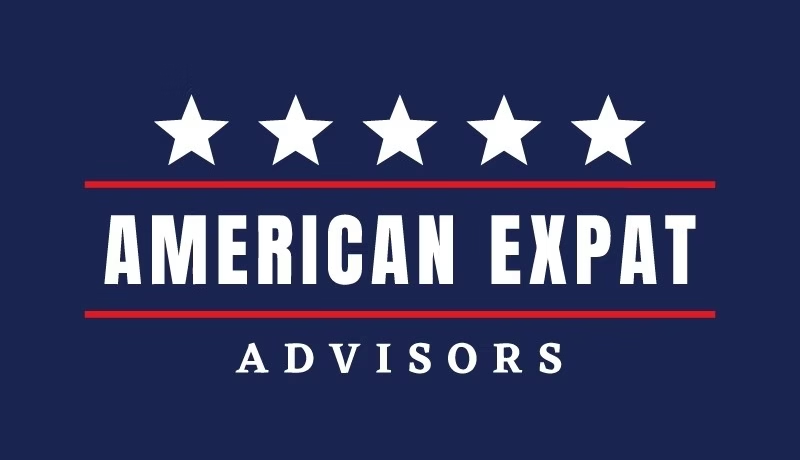Disclosure
American Expat Advisors is an educational and marketing platform. We are not a licensed financial advisory firm. We refer individuals to independent U.S.-licensed financial advisors who specialize in serving Americans living abroad. We do not provide financial, legal, or tax advice. Please consult a qualified professional regarding your individual situation.
Introduction
Being an American abroad already means juggling two sets of rules, two tax systems, and a pile of account logins that could qualify as an Olympic sport. Now toss in a U.S. government shutdown and you’ve got more uncertainty than anyone asked for.
So what does it actually mean for your financial life overseas? The short version: it’s not catastrophic, but it can cause annoying slowdowns, data gaps, and delays in anything that involves the federal system.
1. What’s Happening in the U.S.
The U.S. entered a government shutdown after Congress failed to pass funding bills. During a shutdown, “non-essential” federal operations are reduced or temporarily halted. Federal employees are furloughed, and public data releases or agency approvals can be delayed.
For expats, this matters because several parts of your financial life – tax filings, data reporting, and certain verification processes – are linked to U.S. government systems.
2. How It Affects Americans Abroad with U.S. Financial Ties
a) Retirement Accounts and Plan Administration
Private custodians like Fidelity, Schwab, and others continue to operate normally. However, if your transactions depend on filings with federal agencies (like the SEC) or tax documentation tied to the IRS, expect possible delays.
Economic data used for investment decisions may also be outdated because agencies that publish them are paused. That can affect advisors modeling your portfolios or timing your conversions.
b) Tax Filings and Deadlines
Even abroad, your U.S. tax responsibilities don’t disappear. A shutdown doesn’t suspend filing obligations, but it can slow processing and communication with the IRS.
If you’re rolling over a 401(k) or converting to a Roth IRA, that lag could affect timing and documentation.
c) Travel, Passports, and Benefits
Passport renewals and other State Department services may be delayed. That may sound unrelated to your finances until you realize that expired documentation can block access to U.S. bank accounts or create residency complications.
d) Market Volatility
Markets don’t like uncertainty. Historically, a shutdown trims U.S. GDP growth by about 0.1–0.2 percentage points per week. For Americans with cross-border investments or foreign currency exposure, that volatility may influence short-term valuations and asset strategy.
3. What It Doesn’t Mean (No Need to Panic)
- Your 401(k) or IRA won’t freeze or vanish.
- Social Security benefits and credits are not canceled.
- You can still move money or access your accounts.
- The tax code hasn’t magically gone on vacation.
The issue isn’t collapse; it’s delay and uncertainty.
4. What Americans Abroad Should Do
- Check with your custodians and advisors to confirm if any service timelines are affected.
- Renew documents early. Passport, IRS letters, or anything federal-related could take longer.
- Plan ahead for rollovers or conversions that depend on U.S. data or approvals.
- Review liquidity and currency exposure. If volatility hits, you’ll want cash flexibility.
- Stay compliant. Don’t assume a shutdown exempts you from reporting or filing obligations.
- Talk to a U.S.-licensed advisor who understands expat needs to navigate any cross-border timing issues safely.
5. Why It Matters
Cross-border Americans depend on the U.S. government’s ability to function smoothly for tax, documentation, and investment data. Even short shutdowns can ripple outward, affecting currency timing, transfer logistics, or proof-of-residency documentation.
It’s a reminder that your financial life straddles two systems—and both need attention.
6. Bottom Line
A U.S. government shutdown is a disruption, not a disaster. Your accounts remain secure, but slowdowns in reporting and processing can affect timing, liquidity, and planning. Stay proactive, double-check documents, and lean on professionals who understand both sides of your financial world.
Call to Action
If you’re an American living abroad with U.S.-based assets or a dormant 401(k), it’s the perfect time to review your situation. We can connect you with a U.S.-licensed advisor who understands the complexities of cross-border financial life.
Speak to a U.S.-Licensed Advisor →
Final Disclosure
American Expat Advisors is an educational and marketing platform. We are not a licensed financial advisory firm. We refer individuals to independent U.S.-licensed financial advisors who specialize in serving Americans living abroad. We do not provide financial, legal, or tax advice. Please consult a qualified professional regarding your individual situation.



